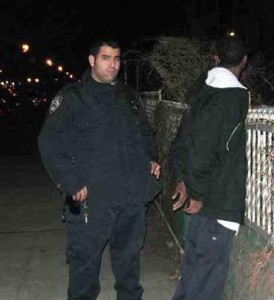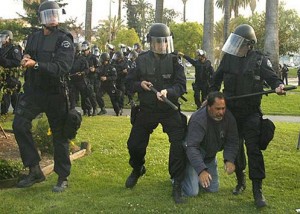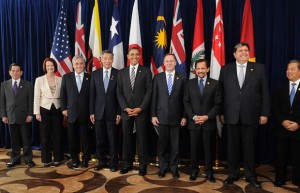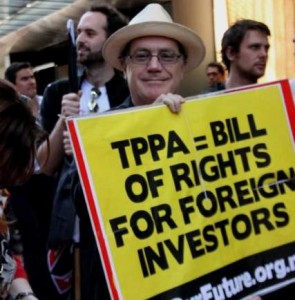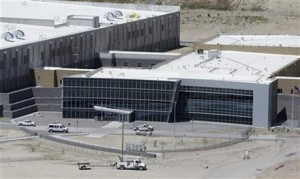Podcast: Play in new window | Download
NYPD Chief Bill Bratton – Broken Windows – Stop and Frisk
New York City Mayor-elect Bill de Blasio announced Mr. Bratton’s appointment as the new commissioner of the New York Police Department this month. He lauded Mr. Bratton’s work in Los Angeles, saying he could police fairly while still bringing down crime. After a 7 years leading the Los Angeles Police Department there’s been an increase in police presence among the homeless in and around Skid Row, plus excessive stops of pedestrians especially in poorer communities.
- Broken Windows is a program that Bratton began in New York with a sociologist that he worked with.
- It’s basically the theory that if you stop the petty issues, you prevent greater crime.
- I use that example because in Los Angeles that’s exactly what they started doing – arresting people on Skid Row for littering, and littering could be the ashes that fell off their cigarette.
- It didn’t reduce crime, it created a statistical reduction.
- Bratton used to do a radio show Ask The Chief on one of the radio stations (In Los Angeles)
- I sued him early and often on Skid Row in particular.
- They would stop every black man on the street, or someone they thought was homeless, cuff them, twist them. If they didn’t have a good ID they’d take em to the station.
- I do think that Bratton was good for the department at that time, and that he changed, from the time that he came til he left.
- We had one of the biggest police assaults on a peaceful crowd on May 1, 2006.
- The one thing I think is fair to say about Bratton is that he will take direction which is one thing he didn’t do before.
Guest – Attorney Carol Sobel, is a solo practitioner in Santa Monica, California. Prior to going into private practice, she spent 20 years working in various positions for the ACLU, including as Senior Staff Attorney for the last seven years she was at the ACLU. She has been involved in numerous significant cases in federal and state courts. Carol serves as local counsel for the Center for Constitutional Rights in Humanitarian Law Project v. Ashcroft and served on the Rampart Blue Ribbon Panel. Since 2002, she was named as one of Los Angeles’ Super Lawyers for Civil Rights. Attorney Carol Sobel is a graduate of the Peoples College of Law.
——
Wikileaks Reveals Quiet Plans and Secret Meetings Behind Trans-Pacific Partnership
Have you heard about the Trans Pacific Partnership? We mentioned it in an update a couple weeks ago. It’s described as an agreement to enhance trade and investments, promote innovation and economic growth among 12 trans-Pacific countries. Those countries include the US, Canada, Japan, Mexico, New Zealand, Australia, Brunei, Chile, Malaysia, Peru, Singapore and Vietnam. As negotiations and talks continue among the countries, much of it is done in secret including an international trade treaty that could have far reaching effects on internet services, copyright law and civil-liberties.
George Kohl:
- It masquerades as a trade deal but its really an economic integration agreement which represents 40 percent of the world’s economy and its a series of countries that circle the Pacific Ocean.
- Its secret negotiations. Unlike most negotiations where you would know what the objectives are of this trade deal. What are the objectives our country is seeking? None of that’s available.
- Congress can’t see what the text is and yet there are 600 corporate lobbyists who get to weigh in and make suggestions.
- It’s a major economic agreement that governs investment. It governs the rights of companies to sue corporations. It governs environmental regulations in our country.
- It governs health and safety regulations here. It will impact food labeling for example.
- We (CWA) were pushing a bill that said if you talk to a call center, you should know where that person works. You should be able to talk to somebody in the United States and that your information should be protected.
- A bill like that could be viewed as interfering with trade and the TPP and the trades that get negotiated would supplant the ability to implement language like that.
- They (TPP) sets up situations that already exist in which companies can sue a country for having environmental protections. Right now there are 14 billion dollars worth of suits where companies are saying my right to gain profit was obstructed by these environmental or other kind of regulations.
- Why is it and who set it up where we open up a trade agreement to Vietnam which pays 20 cents an hour as a minimum wage, which only drive down our wages.
- The objectives that we have in a trade agreement is how do we promote collective bargaining? How do we create growth that benefits working people and that’s not in this picture.
- We’ve got a government that is supposed to be acting of and by the people and instead our government is acting of and by international corporate interests.
- All of this is about creating a structure that lets companies maximize profit but really doesn’t deal with people in their daily lives.
- Where we are at right at this moment is telling Congress that NAFTA didn’t work. There was a promise of 200 thousand jobs, we lost 700 thousand jobs.
- Recently we had a Korea trade deal and promised 70 thousand jobs but we lost 40 thousand jobs.
- People need to reach out to their Congress person now and say be against the Trans-Pacific Partnership.
- You have to ask why is our government acting on behalf of this company (corporations) why isn’t it acting on our behalf?
Guest – George Kohl, Senior Director at the Communications Workers of America.
——
Reform Measures For MetaData Collection, the NSA and EPIC
We take a wide look on recent stories about data mining and privacy, data aggregate corporations, the legal fights to protect personal information and the NSA. Recently a Congressional inquiry revealed how local law enforcement made nearly 10 thousand requests last year for what are called “tower dumps.”
- I think that the core issues that were identified in the letter from the six companies are important issues. Especially the issue of ending bulk surveillance, of increasing transparency of the intelligence process and of improving oversight.
- There are reforms in a number of different areas. We’ve been pushing for transparency of NSA intelligence gathering in the context of criminal investigations for example.
- We’ve been pushing on the intelligence and judiciary committees of Congress and the government to provide public accountability for these programs so people can understand how they function.
- The bulk collection of meta data. . . that program needs to end.
- There’s a bill in Congress right now proposed by Senator Leahy and Rep Sensenbrenner that would end the bulk collection of telephone records if passed today.
- There’s a competing bill introduced by Senator Feinstein and other intelligence committee heads that would enshrine the current bulk collection of telephone records in law.
- Its great to have these companies on board for these reforms but at the same time we’ve been pushing for a number of years for these companies to do more themselves to protect their users.
- Housing this data alone, creates the opportunity for government surveillance in the first place.
- The answer has to be transparency and public oversight of the programs.
- The transparency reports that Google and Apple have published have been impressive documents. They’re putting forward the type of data that they collect on users and the type of data that’s turned over to law enforcement.
- Location data is uniquely sensitive in terms of telephone records because it reveals where a person is, where they go, their associations, their behaviors and can also reveal whether they’re in a private place like a home.
- EPIC is a public advocacy organization and we really seek to inform the public about current and important privacy issues.
- One area of our work is the open government field. We file FOIA requests seeking records on government programs, typically federal agencies. We’re looking at what DHS is doing, what the FBI is doing.
- I worked on a case where we were able to get thousands of records from the FBI on cell phone surveillance technology they use called the Stingray.
- It’s a technology that can be used to intercept cell phones or content.
- I believe that we can build a system where we have oversight mechanisms in place that we can all trust.
- Our organization was founded on strong encryption technology in 1990s where the NSA at the time was trying to establish the “Clipper Chip.”
Guest – Attorney Alan Butler, is the EPIC Appellate Advocacy Counsel. He manages the Appellate Docket at EPIC, including the Amicus Program, and authors briefs in significant privacy, civil liberties, and national security law cases. Recent cases include In re EPIC, United States v. Jones, Clapper v. Amnesty International USA, and Maryland v. King. Mr. Butler focuses on a range of privacy law subjects including the Foreign Intelligence Surveillance Act (FISA), the Electronic Communications Privacy Act (ECPA), location privacy, and other digital Fourth Amendment issues.
————————————————————-
